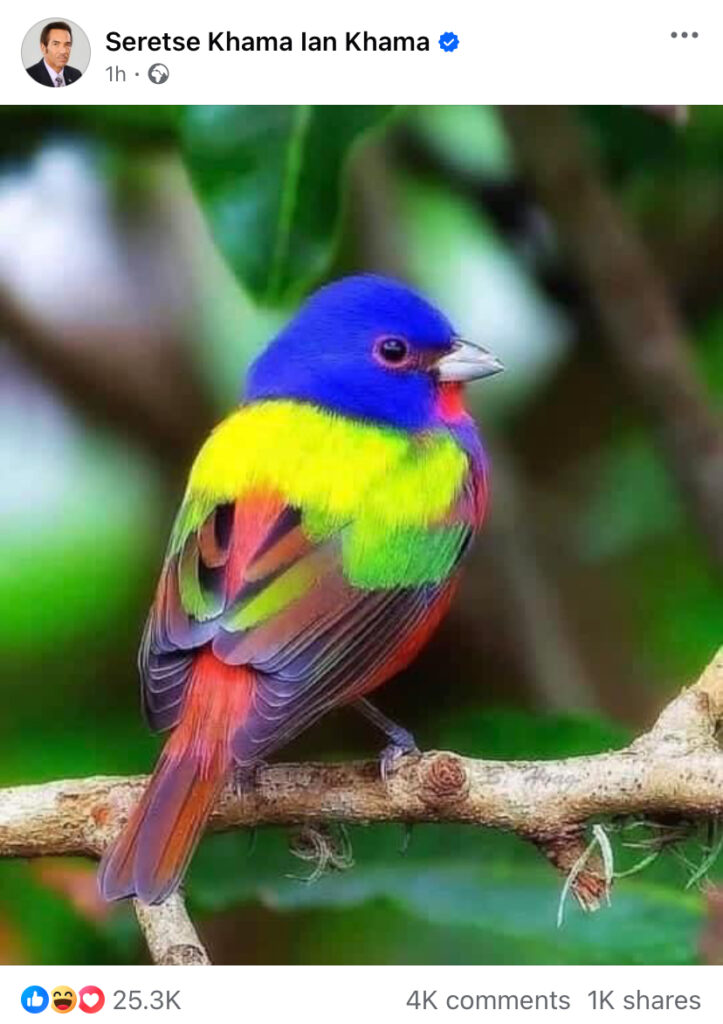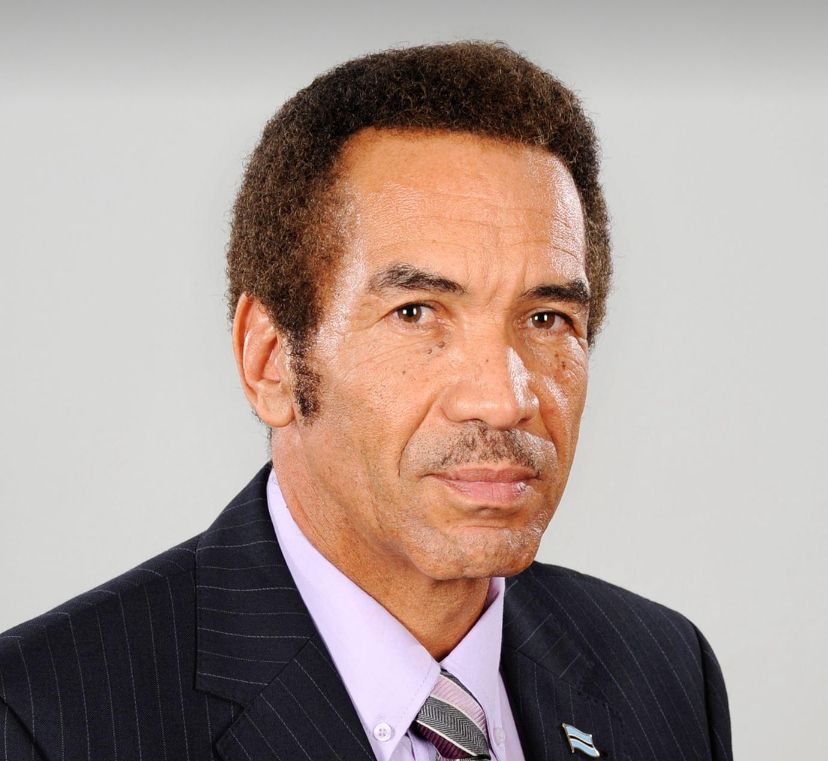Khama Stirs Controversy with Cryptic Painted Bunting Post as Masisi Faces Election Loss
In a move that has set social media aflame with speculation, former Botswana President Ian Khama posted an image of a male Painted Bunting on his platforms, seemingly in response to current President Mokgweetsi Masisi’s dramatic fall in the ongoing parliamentary elections. The Painted Bunting, a bird famous for its brilliant plumage—featuring an array of blue, green, red, and yellow feathers—has been interpreted as a symbolic nod to the coalition of opposition parties currently leading in the seat count.
The colors of the Painted Bunting are a vivid match to those of the key opposition parties: the Umbrella for Democratic Change (UDC), Botswana Congress Party (BCP) and BPF), each of which has seen a significant surge in support. As Masisi and the Botswana Democratic Party (BDP) appear to struggle in this election, Khama’s post has been widely perceived as a subtle but unmistakable celebration of a changing political landscape.
Decoding the Symbolism
Observers are abuzz over the deeper meaning behind Khama’s choice of the Painted Bunting. The bird’s rainbow-like colors have led many to interpret the post as a signal of triumph for the opposition and a hopeful nod to the coalition’s potential to lead the country into a new era. This isn’t the first time Khama has used his social media presence to make politically charged statements, but this particular post has added a layer of mystery and excitement during an already tense election period.
As news spreads of the opposition’s lead in the parliamentary seats, Khama’s cryptic message has fueled speculation that he sees the opposition’s rise as the dawn of a new political dispensation in Botswana.
A Rivalry That Defined an Era
Khama’s relationship with Masisi has been fraught with animosity ever since Masisi succeeded him in 2018. What began as a promising transition between the two leaders quickly unraveled into an acrimonious conflict. Khama, who had backed Masisi for the presidency, grew increasingly critical of his successor’s policies and leadership style. Over time, their feud has come to define Botswana’s political discourse, with Khama accusing Masisi of undermining the country’s democratic values.
In the lead-up to the current elections, Khama intensified his criticism of Masisi, frequently highlighting his grievances on social media. He recently shared a scathing analysis from the Botswana Guardian, which took aim at Masisi’s presidency:
“The Masisi factor, however, might explain the biggest fall in the BDP political stock. There is general consensus that he has been the worst leader ever afforded the state house. The list of his deficiencies includes his affinity to corruption, absence of integrity, dictatorship, nepotism, allergy to the truth, tribalism, and unprecedented levels of greediness. While in 2019 he was considered the solution to the national leadership crisis, in 2024 he is considered the root cause of all the socio-economic and political challenges the nation faces. He has morphed from being a national darling, to public enemy number one.”
This harsh assessment underscores Khama’s long-standing argument that Masisi’s administration has eroded the nation’s integrity, fueled corruption, and stifled democracy.
What’s Next for Botswana?
As the results continue to pour in and the opposition parties look poised to make significant gains, Khama’s post has served as a rallying cry for those eager for change. Yet, the political future remains uncertain. Will the Painted Bunting’s symbolism translate into a tangible shift in governance, or is it merely a momentary flourish in a highly charged political saga?
What is certain is that Khama, ever the master of subtle yet pointed messaging, has once again captured the nation’s attention. His cryptic post has sparked conversations about the future of Botswana, adding another layer of intrigue to an election that could reshape the country’s political landscape. All eyes now remain on the unfolding results—and the political drama that will undoubtedly follow.











